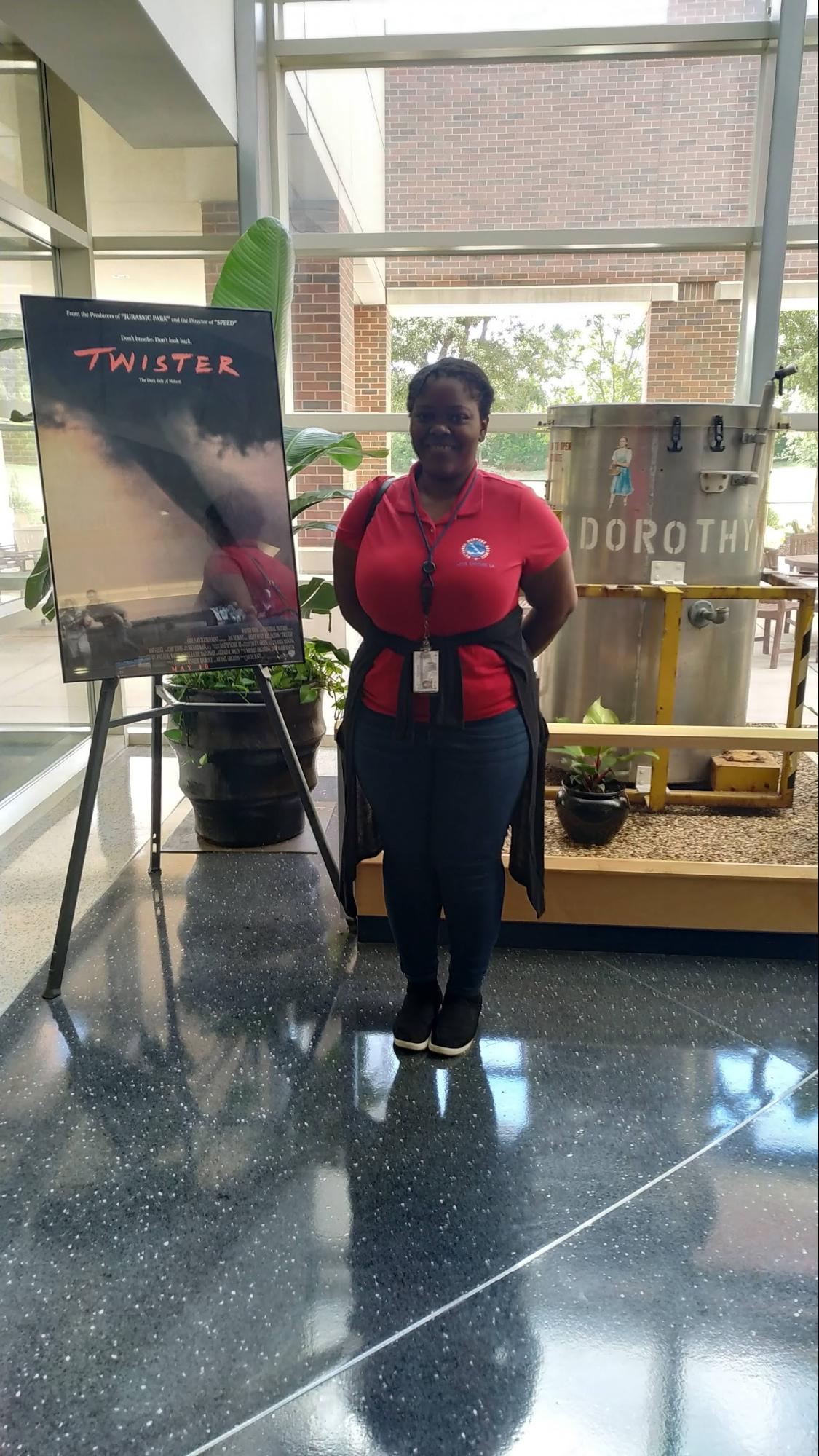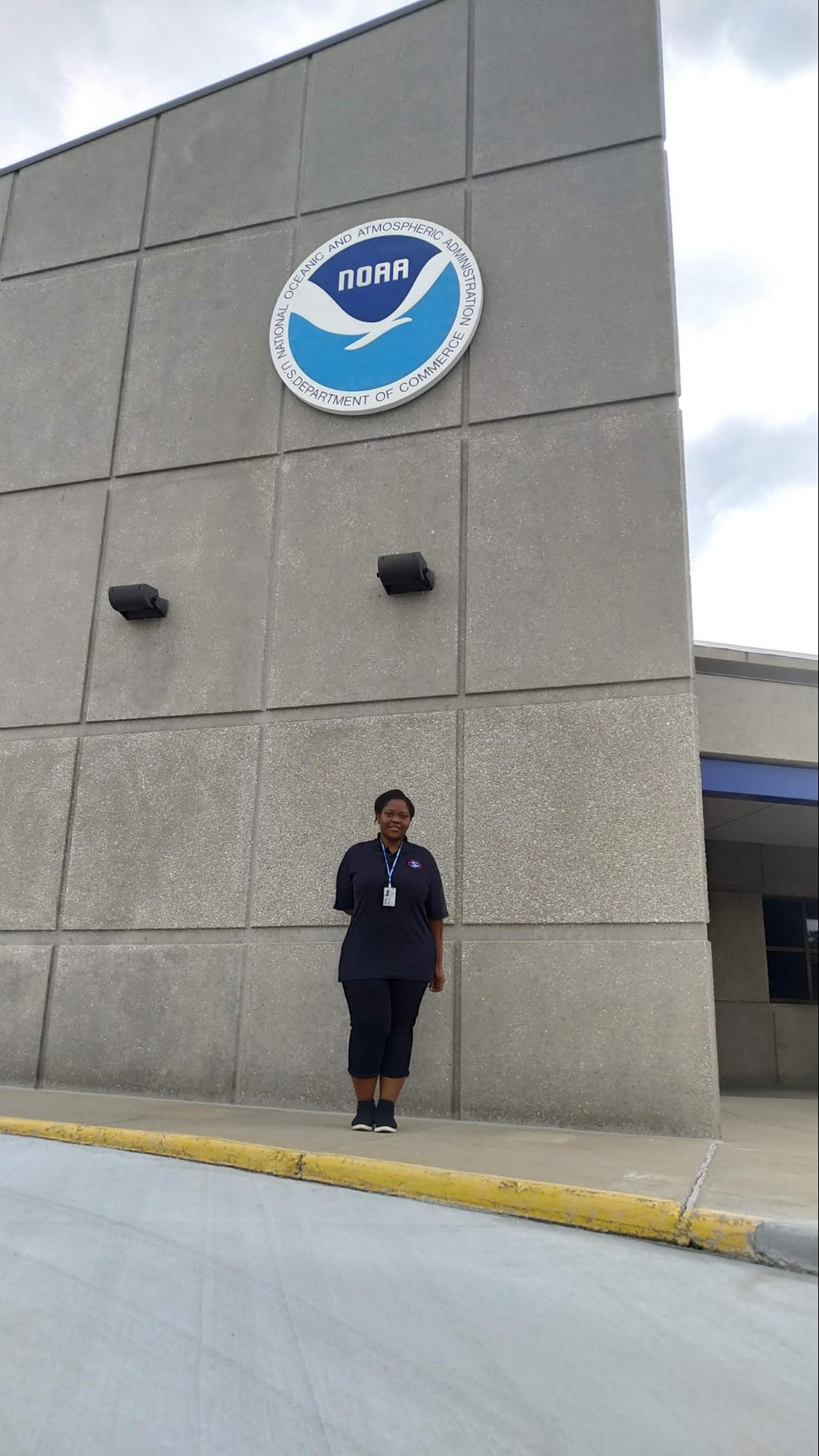Chanelle A. Stigger
Location: Lake Charles, Louisiana
Office: NOAA NWS LCH
Job Title: Meteorologist
Educational Background:
- I obtained my Bachelor's Degree from North Carolina A&T State University, where I majored in Atmospheric Sciences and Meteorology and double minored in Applied Mathematics and Physics.
Describe the career path that led you to your current job with the National Weather Service.
- I was interested in weather from an early childhood age. Growing up, I was able to tour different news stations and WFOs. While in high school, I started shadowing meteorologists at NWS Las Vegas. I was selected as a NOAA Educational Partnership Program (EPP) Scholar while in college. That allowed me to intern with the National Environmental Satellite, Data, and Information Service (NESDIS) in 2015 then the Aviation Weather Center (AWC) in 2016. From that moment, my heart was set on working for the NWS. There was a hiring freeze when I graduated college, so I decided to teach English in Japan for a while before being selected to work for the NWS Lake Charles Weather Forecast Office (WFO).
What do you do for the NWS?
- As a meteorologist with NWS Lake Charles, I create forecasts in addition to issuing watches, warnings, and advisories for the general public, pilots, and mariners in southeast Texas and southwest Louisiana. I also provide Impact-Based Decision Support Services (IDSS) forecasts to core partners such as emergency managers and local officials. I am both the Supplemental Assistance Volunteer Initiative (SAVI) contact and service backup focal point for my office. Being artistic, I make themed and creative graphics for social media and frequently interact with the general public. Often, I assist my Observation Program Leader (OPL) with the Cooperative Observer Program (COOP) and the upper air program.
What was the most interesting, exciting, or impactful weather/water event you experienced while working for the NWS and why does it stand out?
- It cannot be narrowed down to just one event. It is a three-way tie between Hurricane Laura, Hurricane Delta, and the May 17, 2021 flooding event. All of these events had catastrophic impacts for my coworkers and community. Category 4 Hurricane Laura wreaked devastating impacts on the community I live in followed by Category 2 Hurricane Delta six weeks later. My coworkers and I evacuated for Laura but not for Delta. We worked together as a team, some of us working for over 24 hours straight. The May 17, 2021 flooding event stands out because I was on radar also issuing tornado warnings. A tornado passed less than a mile away from the office! Additionally several places, including my apartment complex, were flooded with 1-2 feet of water.
What made you decide to pursue a career with the NWS?
- I made the decision to pursue a career with the NWS after touring and shadowing NWS forecasters in Las Vegas, Nevada while in high school. After my second internship with AWC, I made the decision to specifically pursue a career with either a WFO or national center.
What do you like most about working for the NWS?
- The top things I like about working for the NWS are: outreach, IDSS, working on COOP equipment, and launching weather balloons. Outreach particularly comes in first place because I love to teach and get students interested in STEM.
What advice do you have for someone interested in a career with the NWS?
- I highly recommend shadowing NWS forecasters or volunteering at a WFO for anyone interested in becoming a meteorologist. For college students, the Pathways Program or Hollings / EPP is a great way to get your foot in the door as well as get fantastic first hand experience.
What training or coursework would you recommend to someone interested in following your career path?
- It’s pertinent to complete the necessary coursework (mainly meteorology, physics, and math classes) listed in the vacancy announcement. In addition to this, working on basic computer programming and communication skills are vital. Other than college by itself, completing COMET modules and FEMA courses are quite helpful. Don’t be afraid to reach out to myself or your local meteorologists who are very willing to help!

